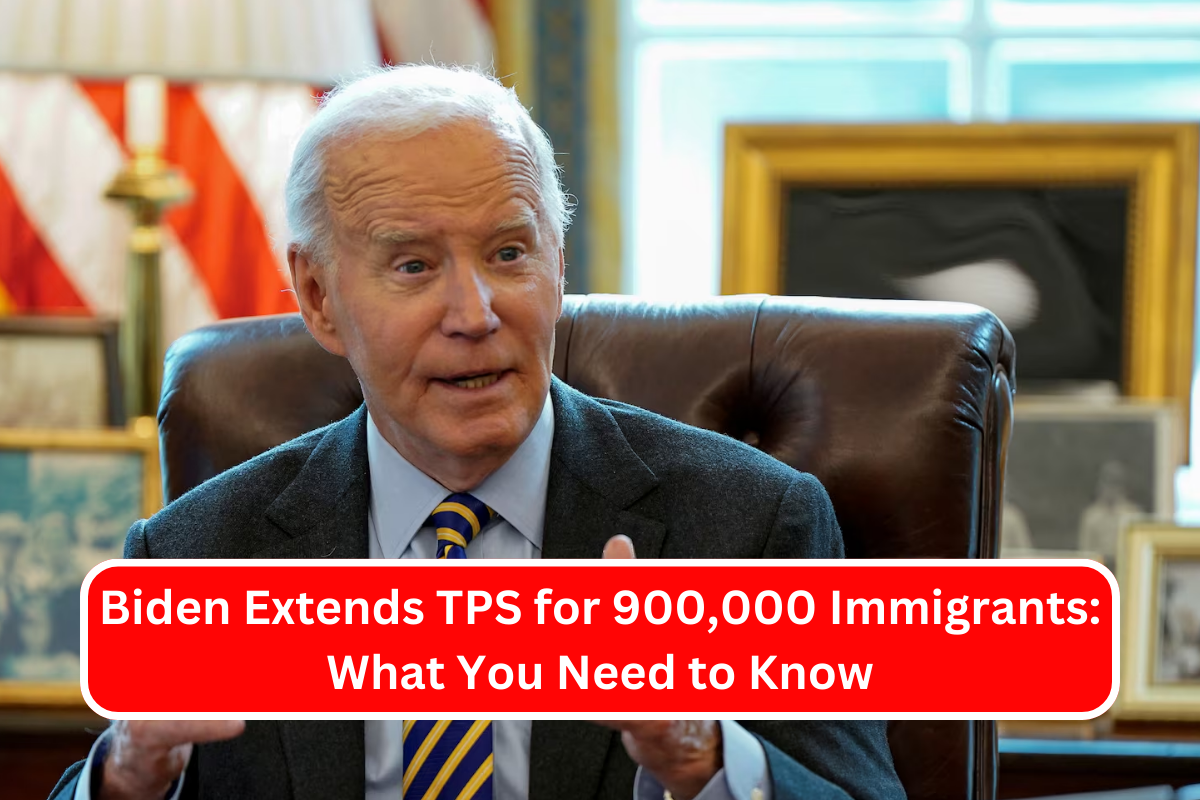President Joe Biden’s administration has made a significant decision to extend Temporary Protected Status (TPS) for immigrants from Venezuela, El Salvador, Ukraine, and Sudan. This will affect around 900,000 immigrants, providing them with relief from deportation and work permits for another 18 months.
This extension comes as a critical move to delay any attempts by President-elect Donald Trump to end these protections, which could have led to the deportation of many immigrants.
What is Temporary Protected Status (TPS)?
Temporary Protected Status (TPS) is a program that offers temporary relief to immigrants whose home countries are experiencing difficult conditions. These conditions can include natural disasters, armed conflicts, or other extraordinary events.
TPS allows these immigrants to live and work in the United States legally for a specific period without the fear of deportation.
Biden’s Impact on TPS
Since taking office in 2021, President Biden has significantly expanded the TPS program, increasing the number of eligible immigrants. This extension is part of Biden’s ongoing efforts to support immigrants affected by violence, war, and disasters.
Under Biden’s leadership, TPS now includes people from 17 countries, offering relief to over 1 million individuals.
Challenges to TPS under Trump
During his presidency, Donald Trump attempted to end many TPS protections. His administration tried to remove TPS for immigrants from several countries, including Venezuela, El Salvador, and others.
However, U.S. courts stopped most of these attempts, and many immigrants were able to stay in the country with protection. With Trump returning to the White House in January 2025, there are concerns that he may again try to end these protections.
The Call for Expanding TPS
While the Biden administration has taken steps to extend TPS, some activists and Democrats are calling for the program to be expanded further. They want TPS to include immigrants from other countries experiencing crises, like Nicaragua.
These advocates argue that such extensions will help immigrants continue to contribute to their communities and support their families.
Who Benefits from the TPS Extension?
The largest group of TPS recipients is from Venezuela, with about 600,000 Venezuelan immigrants receiving protection. Venezuela’s political and economic instability, marked by high levels of crime and violence, led to these individuals being granted TPS in 2021.
The extension ensures that these immigrants will not be sent back to a dangerous situation.
Conclusion
President Biden’s decision to extend TPS for immigrants from Venezuela, El Salvador, Ukraine, and Sudan is an important step in supporting people who have been affected by disaster, war, and other crises.
While this move offers temporary relief, advocates believe that more should be done to help other vulnerable immigrants. As the political landscape changes with the return of President Trump, the future of TPS remains uncertain, making it an ongoing issue for both the immigrants and the U.S. government.
Frequently Asked Questions (FAQs)
- What is Temporary Protected Status (TPS)? TPS is a program that allows immigrants from countries experiencing natural disasters, armed conflicts, or other emergencies to stay in the U.S. temporarily without fear of deportation.
- How many immigrants are covered by the TPS extension? The TPS extension covers about 900,000 immigrants from Venezuela, El Salvador, Ukraine, and Sudan.
- Why did Biden extend TPS for these countries? The extension is to provide protection from deportation and work permits for immigrants affected by natural disasters, conflicts, and instability in their home countries.
- What was Trump’s stance on TPS? Trump tried to end TPS protections during his presidency, but U.S. courts blocked most of these efforts.
- Can more countries be added to TPS? Activists and some politicians are calling for TPS to be expanded to include immigrants from other countries facing similar crises, such as Nicaragua.





















